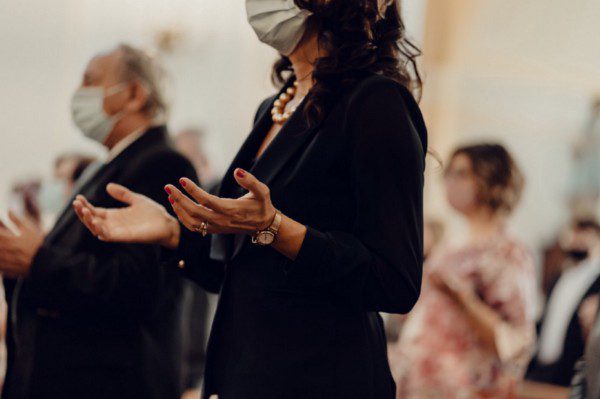By Leah Chiappino
Editor’s note: This story first appeared in PULSE, which is published by the Lawrence Herbert School of Communication’s Magazine Production class for Hofstra University students and residents of surrounding communities.
At the height of the pandemic, it was funeral workers who most intimately bore witness to the nearly 6,500 Long Islanders who lost their lives to the coronavirus.
Melissa Schmidt, a funeral director at Oyster Bay Funeral Home, had families waiting for three weeks after their loved ones had died to hold funerals due to the capacity limits that cemeteries had to put in place. She was unable to embalm all of the deceased that arrived at her funeral home because of a high demand with little staff, as well as the impracticality of families paying the high cost funeral services that were limited to 10 people or less.
The third-generation owner of Nolan Funeral Homes in Northport, Mike Nolan, received calls from desperate mourners in New York City, unable to find a place to bury their loved ones. He, too, had to turn them away because there was simply no room. “We never had to do that before,” he said.
Nolan saw demand for funerals increase by nearly 50 percent from March 15 to May 13 last year.
John J. Glynn, a funeral director at Thomas A. Glynn and Son Funeral Home in Rockville Centre, said he normally arranges fewer than 10 funerals a month, but in April 2020, he arranged close to 50. Schmidt went from 10 funerals a month to more than 60.
At the height of the pandemic, funerals were limited to 10 people or less, and reserved only for immediate family. “We used to be a public building, and we became a private building,” Nolan said.
Schmidt noted this was especially traumatic for people who were unable see their loved ones who had unexpectedly died from Covid-19 in the hospital, saying, “I had one woman tell me, ‘I dropped my husband off at the hospital two weeks ago, and I’m going to get his ashes back.’”
After such a tumultuous year, funeral homes are looking forward to the return to normalcy. Still, events are kept to a limited number of people and have not fully returned to pre-Covid standards. Because Nolan’s funeral home does not have separate entrances and exits, it was, at press time, limited to one family at a time, at a half capacity of 75 people.
“People still have a sense of nervousness,” Glynn said. “They usually pay their respects and leave, whereas they used to stay for a while.”
Nolan has also observed the continued sense of unease among many families. “It all depends on the family,” he said. “Some may have an elderly parent, and they want to keep it small, so in which case we keep it private, and some people want to have a larger gathering, in which case some people have to wait outside. It’s all what they’re comfortable with.”







